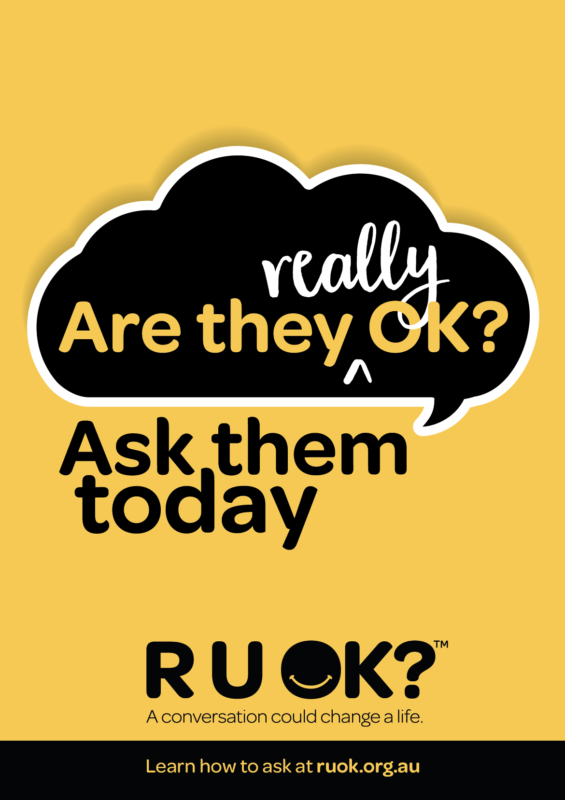 Do you know how the people in your world are really going?
Do you know how the people in your world are really going?
Got a feeling that someone you know or care about it isn’t behaving as they normally would? Perhaps they seem out of sorts? More agitated or withdrawn? Or they’re just not themselves. Trust that gut instinct and act on it. Learn more about the signs and when it’s time to ask R U OK? here.
Life’s ups and downs happen to all of us. So chances are someone you know might be struggling. Your genuine support can make a difference whatever they are facing, big or small.
So, don’t wait until someone’s visibly distressed or in crisis. Make a moment meaningful and ask them how they’re really going.
By starting a conversation and commenting on the changes you’ve noticed, you could help that family member, friend or workmate open up. If they say they are not ok, you can follow the recommended conversation steps to show them they’re supported and help them find strategies to better manage the load:
Be ready
- Are you in a good headspace?
- Are you willing to genuinely listen?
- Have you set aside the time you might need?
Be prepared
- Remember that you won’t have all the answers (and that’s OK).
- It can be difficult for people to talk about personal struggles and they might be emotional, embarrassed or upset.
Pick your moment
- Have you chosen somewhere relatively private where you’ll both be comfortable to chat?
- When is a good time for them to have a meaningful chat?
- If they don’t have time when you first approach them, arrange another time for the conversation.
- It might be more comfortable for the person to be side-by-side with you (e.g. walking together or sitting in the car) rather than face-to-face.
Once they’ve opened up, encourage them to access support or to do something that might lighten the load. You don’t have to have the answers or be able to offer professional health advice, but you can help them consider the next steps and actions they can take to manage their situation.
Some good options might include talking to family, a trusted friend, their doctor or another appropriate health professional. You can also suggest they think about what’s worked for them or helped in the past when they’ve felt this way or faced similar challenges.
Things that help them relax or bring them joy might include going for a walk, seeing a movie, watching or playing some sport etc.
Don’t forget to check back in on them.
Are they really OK? Ask them today. Your conversation could change a life.
If they are ok, that person will know you’re someone who cares enough to ask.
